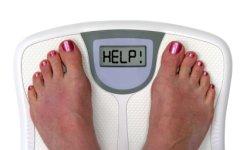Joining An Anorexia Nervosa Support Group
 A support group is part of the treatment “package” in anorexia nervosa care.
A support group is part of the treatment “package” in anorexia nervosa care.
Being able to talk with others who share the experience adds to the effectiveness of therapy from outpatient treatment with a therapist, psychiatrist and dietitian. Even residential treatment will commonly include attending a support group when that is available.
Online or Offline?
Face-to-face meetings, weekly (or at least monthly) are better than online interactions for a variety of reasons. The primary reason is an inability to recreate a face-to-face interaction over the Internet. When you have to drive somewhere and spend an hour or so talking with others, it represents a commitment not duplicated in a discussion group where you can click away on impulse. Hearing real people talk about real problems and getting feedback is a very powerful way to get the support needed.
Because anorexia has at least partially “come out of the closet,” it is easier to find an offline group than ever before. A list by state can be found here and another here. You may also call a therapist’s office in your area and ask about local support groups. The National Eating Disorders Association is another good resource.
None of this means that online support doesn’t have a place. Joining a discussion group, especially when first diagnosed with the condition, gives a chance to read many posts and many experiences all at once. Convenience is also an issue. With just a smart phone, you can read or post whenever you have a few minutes free.
For crisis, there are also phone contact and support services. The National Association of Anorexia Nervosa and Associated Disorders runs a helpline that will offer assistance and referrals: (630) 577-1330. And part of joining a support group will be to get sponsor contact information so you can call for emotional support.
Not all support groups are created equal
Keep this in mind if your first experience attending a support group is not a positive one. Watch out for people who brag about having their disease under control but really want to boast about controlling their weight or want to share tricks to conceal anorexic behavior.
Don’t give up if the first or even second group you find doesn’t meet your needs. Finding a group of peers who really understand the condition is worth the struggle.
 Eating Disorder Self Test. Take the EAT-26 self test to see if you might have eating disorder symptoms that might require professional evaluation. All answers are confidential.
Eating Disorder Self Test. Take the EAT-26 self test to see if you might have eating disorder symptoms that might require professional evaluation. All answers are confidential.